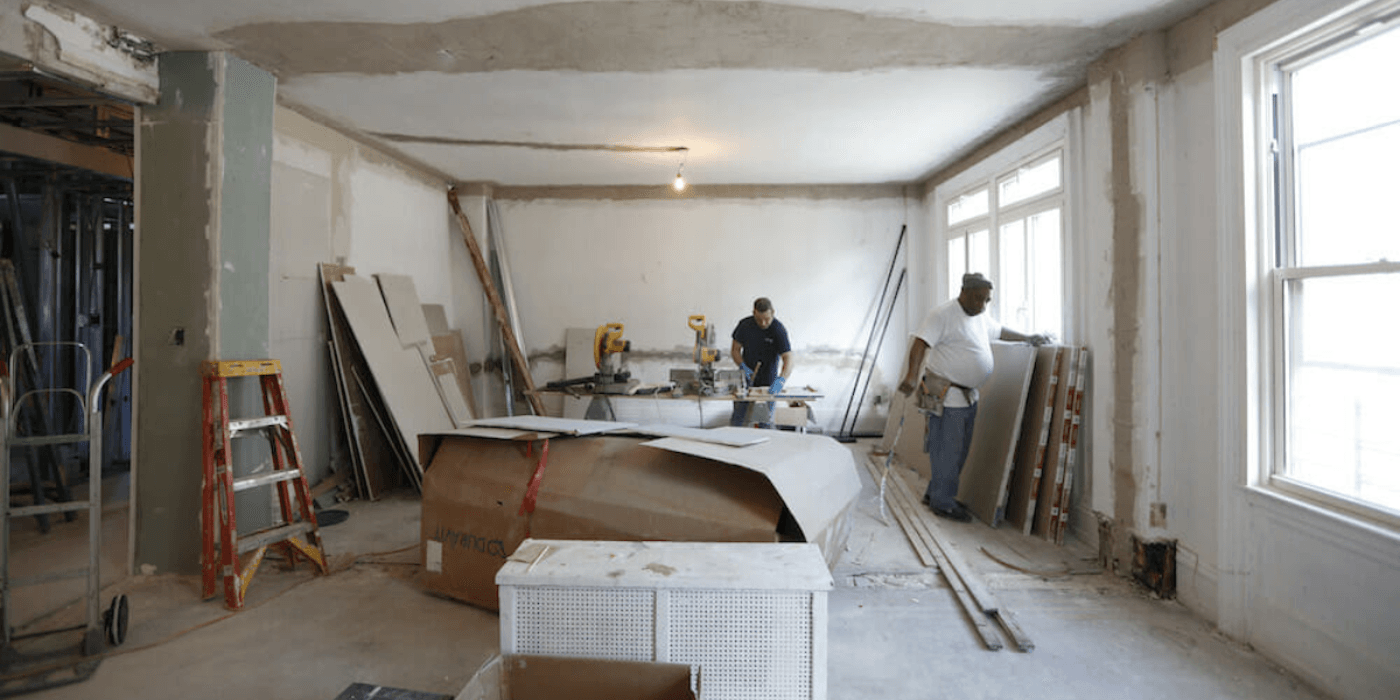How to Use Equity to Renovate Your Home

Introduction
Renovating your home is an exciting venture that allows you to enhance your living space, increase its value, and create a personalised environment that suits your needs and style. However, home renovations can be costly, and finding the right financing options is crucial. As a credit finance professional, I will guide you on effectively using home equity to fund your renovation projects and maximise your investment.
Understanding Home Equity
Home equity refers to the portion of your property you own outright, without any outstanding mortgage or loan balances. It is the difference between the current market value of your home and the amount you owe on your mortgage. For example, if your property is valued at $500,000, and you have a mortgage balance of $300,000, your home equity would be $200,000.
Calculating home equity is relatively straightforward. However, it's important to keep in mind that factors such as the housing market, property improvements, and mortgage payments can influence your equity over time. Regularly assessing your home's value and mortgage balance will help you stay informed about your equity position.
Leveraging Equity for Renovations
Using home equity to finance renovation projects can be an excellent option for homeowners. It allows you to tap into the value you have built in your property and use it as collateral for a loan or line of credit. By leveraging your equity, you can access larger sums of money and potentially secure better interest rates compared to other financing options.

Before proceeding, it's crucial to consider a few key factors. Firstly, ensure that you have built sufficient equity in your property. Lenders generally require homeowners to have a minimum of 20% equity before considering a home equity loan or line of credit. Additionally, you need to evaluate your ability to repay the loan, taking into account your income, expenses, and other financial obligations.
Home Loan Increase and Renovations: Determining Your Scope
When planning your renovation project, assessing the potential increase in your home loan is important. This involves estimating the additional funds you would need to borrow based on the anticipated cost of the renovations.
To determine your scope, create a detailed renovation plan and obtain quotes from contractors or suppliers. Factor in all the costs, including materials, labour, permits, and any associated fees. Once you have an accurate estimate, you can assess the financial impact of increasing your home loan.
Consider the affordability of the loan increase by reviewing your budget and cash flow. Ensuring that the increased monthly repayments fit comfortably within your financial capabilities is essential. Remember to account for any potential interest rate fluctuations and plan for unforeseen expenses during the renovation process.
Home Loan Increase and Renovations: Choosing the Right Type

Several options are available for accessing increased home loan funds. Each option has its advantages and considerations, so choosing the one that best aligns with your financial goals and circumstances is important.
- Cash-out Refinancing: This option involves refinancing your existing mortgage for a higher amount and receiving the difference in cash. It allows you to take advantage of potentially lower interest rates while accessing the funds needed for your renovations. However, keep in mind that refinancing may come with additional fees and could extend the repayment term of your mortgage.
- Home Equity Line of Credit (HELOC): A HELOC provides you with a line of credit based on the equity in your home. You can borrow as needed, up to a predetermined limit, and only pay interest on the amount you use. This flexibility can be advantageous for phased renovation projects or ongoing expenses. However, interest rates on HELOCs can be variable, meaning they may increase over time.
- Home Equity Loan: Also known as a second mortgage, a home equity loan provides a lump sum based on your home equity. You receive the funds upfront and repay the loan in regular instalments over a fixed period. This option offers predictable stability with a fixed interest rate and consistent monthly payments.
When choosing the right type of loan, consider factors such as your renovation timeline, budget, and long-term financial goals. Consulting with a credit finance professional can help you make an informed decision based on your unique circumstances.
Tips for Utilising Equity Wisely

To make the most of your home equity and ensure a successful renovation project, consider the following tips:
- Set a Realistic Renovation Budget: Determine the scope of your renovations and create a detailed budget that covers all necessary expenses. Leave room for unexpected costs that may arise during the project.
- Evaluate Return on Investment (ROI): Prioritise renovations that will add value to your home and provide a positive return on investment. Consider factors such as market trends, local demand, and the preferences of potential buyers if you plan to sell your property in the future.
- Work with Professionals and Obtain Multiple Quotes: Seek recommendations for reliable contractors and suppliers. Obtain multiple quotes to ensure competitive pricing and quality workmanship.
- Monitor Interest Rates and Repayment Terms: Stay updated on interest rate trends to secure favourable terms. Consider the impact of interest rate changes on your monthly payments and overall cost of borrowing.

- Maintain Financial Discipline and Avoid Over-Leveraging: Borrow only what you need and can comfortably repay. Avoid overextending yourself financially, as it could lead to difficulties in meeting your loan obligations.
By following these tips, you can use your home equity wisely and achieve your renovation goals while safeguarding your financial well-being.
Conclusion
Maximising your home equity to finance renovation projects can be a smart financial move. By understanding the concept of home equity, assessing your eligibility and scope, and selecting the right financing option, you can successfully transform your living space while potentially increasing the value of your property. Remember to plan carefully, consult with credit finance professionals, and make informed decisions to ensure a successful and rewarding renovation experience.
Experience hassle-free renovation financing with Driva. Our platform connects you with over 30 lenders, allowing you to compare and find the best deal tailored to your financial situation. With Driva, applying for a renovation loan is seamless, as our online application process saves you time and effort. We prioritise transparency, providing clear information on rates and fees, and ensuring you have peace of mind throughout the loan process. Trust Driva for a smooth and straightforward renovation loan experience.




